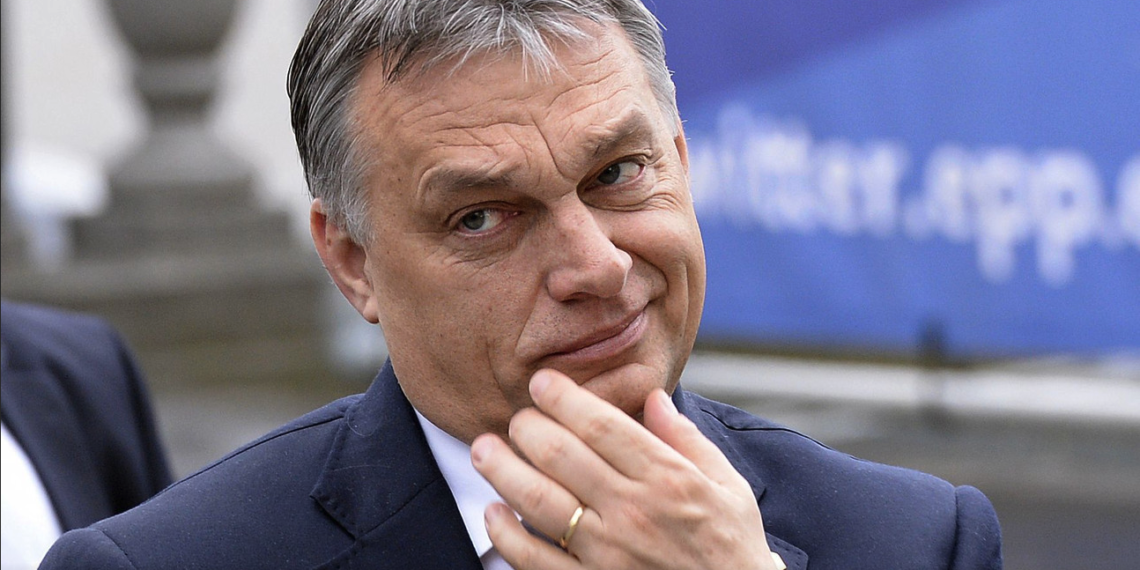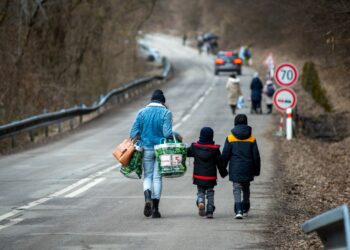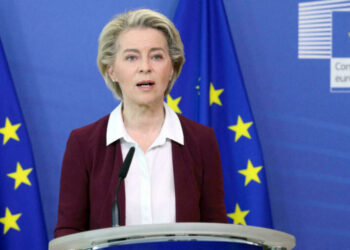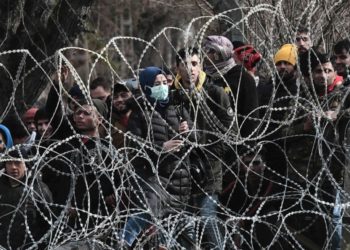Wednesday, last week, a peculiar videoconference was held with Serbia’s President Alexsandar Vučić, Slovenia’s Prime Minister Janez Janša, Hungary’s Prime Minister Viktor Orbán, and Francois-Xavier Bellamy, member of the European Parliament.
Orbán initiated the meeting to showcase his allies to the European People’s Party (EPP) leadership, signaling that any attempt at turning his current suspension into outright expulsion would meet resistance.
To further consolidate his positions, Orbán praised the European leadership of Germany and expressed his hope that the new strategy of Europe will be designed by the EPP.
Freedom Fighters
The panel was supposed to demonstrate how “freedom fighters” talk about the taboo subjects of European politics. Orbán defined the roundtable participants as “politicians who were active and who contributed at the time of the downfall of the Soviet Union.”
“It’s always a great honor,” he remarked, “to speak in front of good patriots. All three of us invested a lot of energy to fight for the freedom and sovereignty of our nations, so this is a special club of freedom fighters and fighters for national sovereignty.” He added, “as freedom fighter veterans, may I say, it is good to share our experience and future ideas on Europe.”
Bellamy, the chair of the panel, also asserted that the Eastern European speakers contributed to the dismantlement of Soviet communism.
In fact, among the three of them, Slovenia’s Janša comes closest to the freedom-fighter ideal, being arrested for his political views in 1988. But even he started his career as an official in the communist youth organization, not to mention that one could hardly fight against “Soviet” communism in Yugoslavia.
Orbán became politically active after the communist regime stopped imprisoning dissenters.
Finally, the engagement of Vučić in politics began in 1993, first by joining the nationalist Serbian Radical Party and then by acting as minister of information. In the latter capacity, he imposed censorship on Serbian journalists.
All three promoters of “uncensored Europe” have engaged in maneuvers aimed at undermining press freedom domestically.
Ideological Claims
Next to serving diplomatic purposes, the meeting also revealed important ideological commonalities and differences. A central line that united all participants, with the partial exception of Vučić, was the culture-war argument.
In his introductory words, Bellamy celebrated “the end of the end of history,” that is, the end of the era of cosmopolitan consumerism, of the neglect of the historical roots of European civilization, and of “markets absorbing all of human life.”
Janša and Orbán both stressed that today’s European politics revolves around the conflict of progressive anti-Christian multiculturalists and the true defenders of Christian heritage. Janša even spoke of a “struggle for Western civilization” against cultural Marxists who attack “nation, family, private property, private schools, and religion.”
The more pragmatic Vučić promised cooperation with the EU on the migration issue. But then, in a quintessential formulation of the populist ethos, he said that “people want to see the real people in whom they are going to believe, they want to see certainty and they need to see leaders.” Orbán and Janša happily agreed.
Europe Divided
All speakers lamented Europe’s weak performance in areas such as fertility, marriages, defense spending, and economic competitiveness. Orbán was particularly upset that the Western politicians go around lecturing their international partners on how to run their countries before solving their domestic problems.
The panel-discussion fitted well into the newly found anti-Western and anti-liberal brotherhood of hitherto feuding Central and Eastern European nations.
In the light of the long-standing Serbian-Hungarian tensions, it was particularly remarkable to see how keen Vučić was to emphasize the mutual respect that binds him to his friend Viktor, from whom he has “learned so much.”
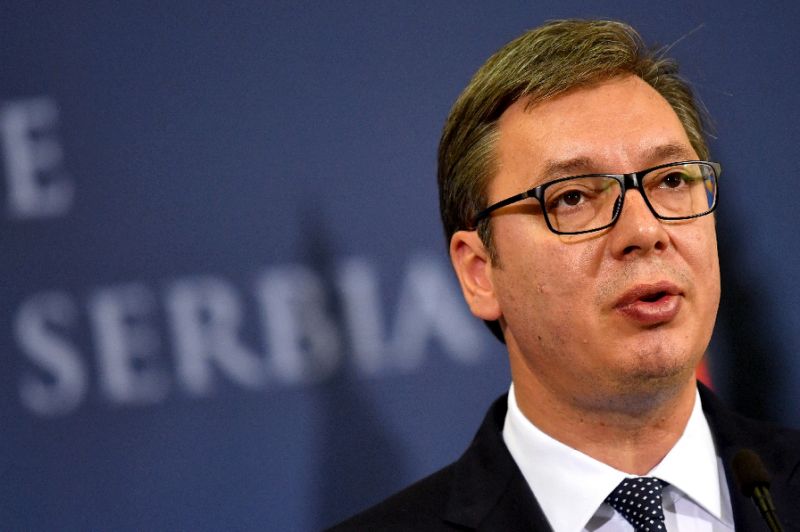
On the other hand, the East-West opposition was raised to a civilizational level by Orbán, who highlighted that the two regions gave different answers to the recent financial, migration, and COVID-19 crises, the East outperforming the West in all instances.
“How can we keep together the two parts of the European Union with two different concepts of Europe?” Orbán asked. His recommendation was simple: “The West should not force its views on Eastern countries. If we are ready to accept that kind of difference, even in terms of the vision for the future, we can manage to live together and keep together the Union as a whole.”
There was no protest from his partners since they all seemed to agree that the Eastern European leaders should be allowed to do whatever they wish in their backyard. But the sharp division of the continent into East and West is hardly in line with all parties’ interests.
Bellamy explicitly said that he wants to transfer EU’s common market into a “geopolitical lever,” and he concluded the roundtable wishing for no division between East and West, not realizing (or pretending not to realize) that Orbán just provided the conceptual tools for such a division.
Respect for Authoritarianism
The positive value that all participants embraced and emphasized was “respect.” Respect, however, means something very specific in this context. It means that no one should criticize the political conditions in another country.
The EU’s role, in this approach, is to create wealth and security, and not to demand the rule of law, human rights, media pluralism, or fair elections from its member states.
“Pushing different cultures to the same direction politically will always be counterproductive and only a waste of resources,” quipped Orbán, applying this maxim not only to the policy of Brussels vis-a-vis Beijing or Ankara, but also vis-a-vis Budapest, Warsaw, and Belgrade. He sees Europe divided not only by political values but also by primordial regional cultures. And he is happy with the partition, so long as he can keep his part.
Part of the European People’s Party, an alliance explicitly established with the goal of integrating Europe, seems to find this acceptable.
Disclaimer: The views and opinions expressed here are those of the author and do not necessarily reflect the editorial position of The Globe Post.

